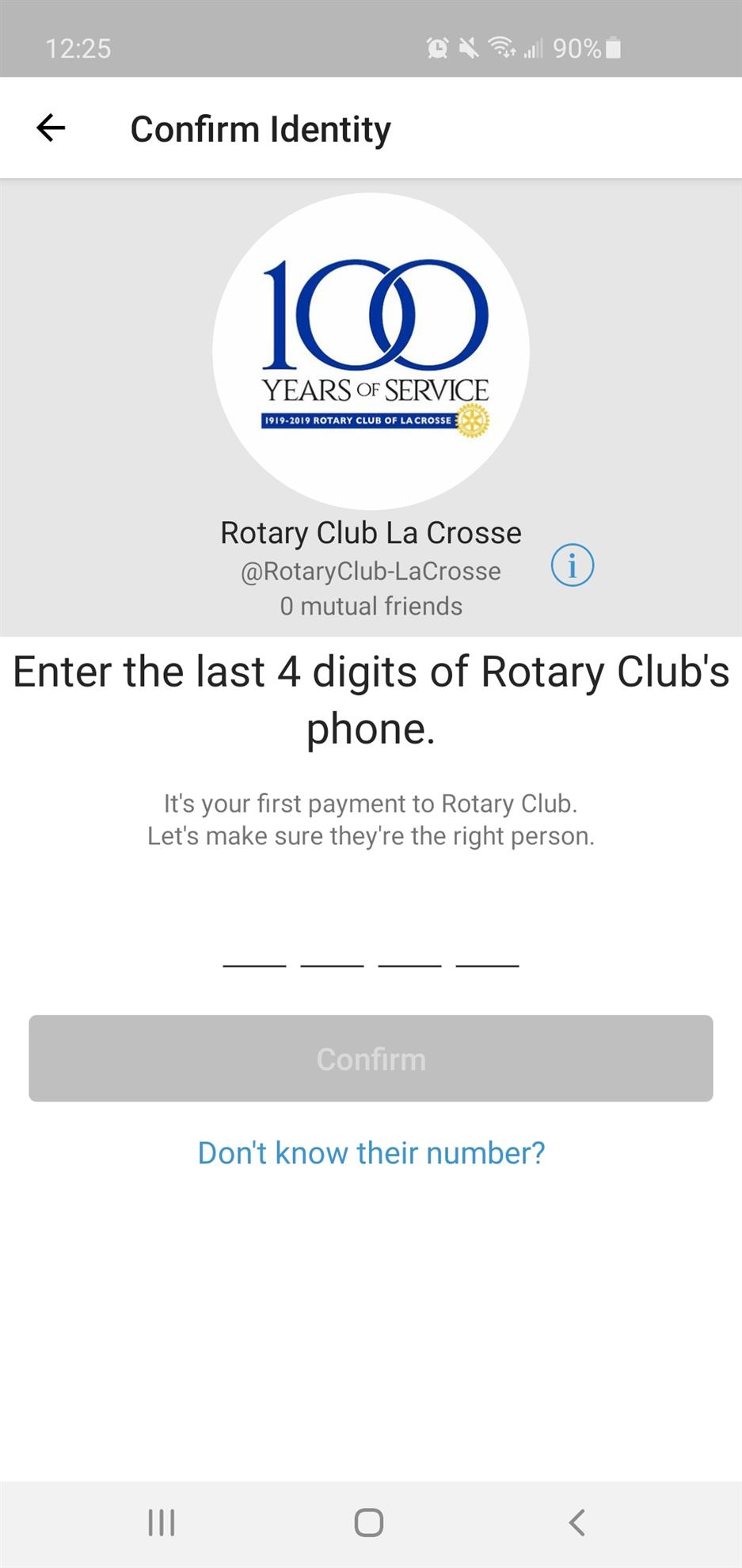How do I use Venmo?
Venmo is a mobile payment service owned by PayPal. Venmo account holders can transfer funds to others via a mobile phone app; both the sender and receiver have to live in the U.S. Venmo is a type of payment rail. It handled $12 billion in transactions in the first quarter of 2018.
Since 2008, cash transfers using Venmo were not instantaneous and could be canceled after an initial transfer is sent. Like traditional wire transfer they can take one to three business days to become final. In January 2018,PayPal rolled out an instant transfer feature on Venmo, allowing users to deposit funds to their debit cards typically within 30 minutes. A 1% fee is deducted from the amount for each transfer, while the standard bank transfer (typically completed within 1–3 business days) is available for no fee.
Download the App to your mobile device today!
Our account is Rotary Club of La Crosse (@RotaryClub-LaCrosse) - last four digits of our phone number is 4491.

- Change your “payment activity” privacy setting to “private.” Here’s how. (Having your transactions set to “Public” will allow others to see when you make payments through Venmo, as well as the description you attach to each one.)
- Consider setting up a separate online checking account just to fund Venmo payments (rather than linking it to your primary checking account). If you link it to a credit card, you incur a 3% fee.
- Never store large amounts of money in your Venmo balance. Immediately transfer Venmo transactions to linked bank accounts.
- Don’t use the app on public wifi.
- Set up your Venmo app to require a passcode, PIN, or fingerprint before making a payment.
- Only use Venmo to send and receive money from friends and family you know and trust. Don't use it to buy something from an online marketplace, to send money to someone you don't know, or someone claiming to be from a government agency.
- Only accept payments from people you know and trust (there’s a scam where people send you money “by accident” - read more here.)


